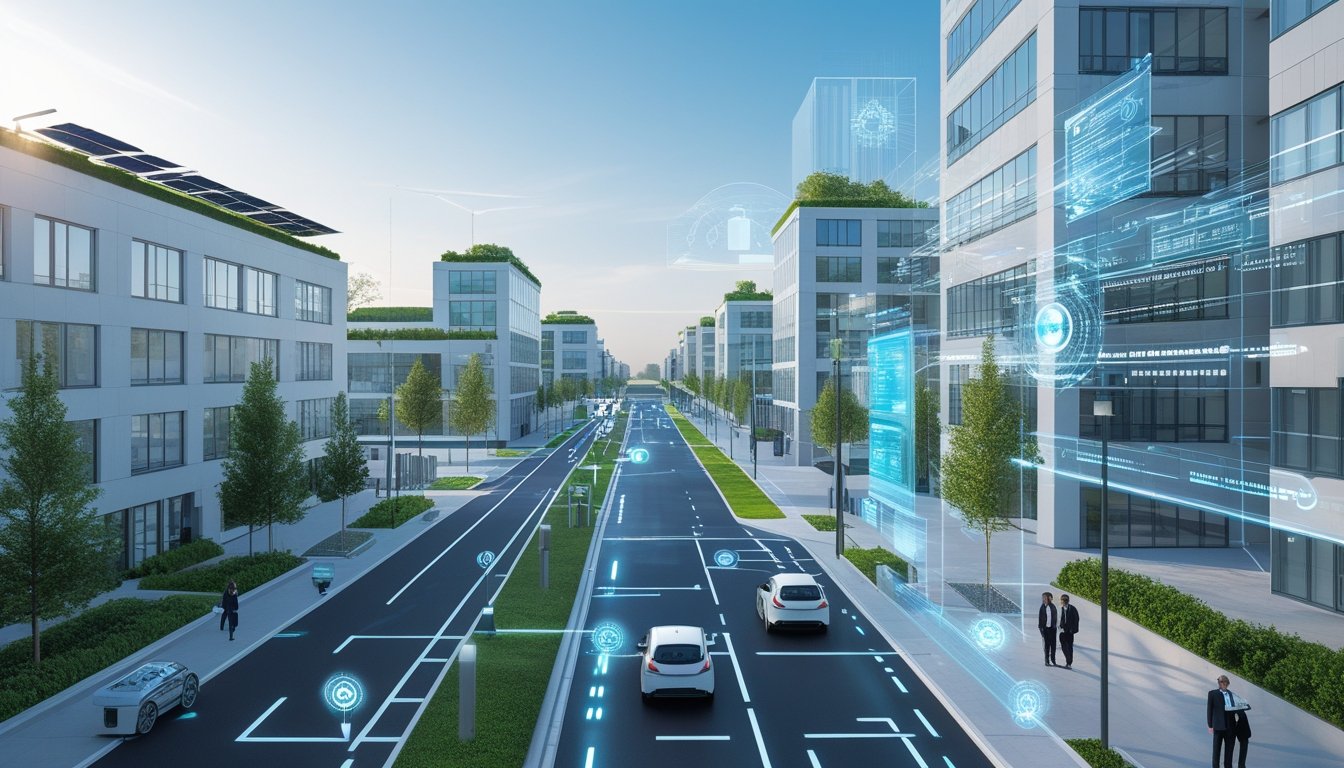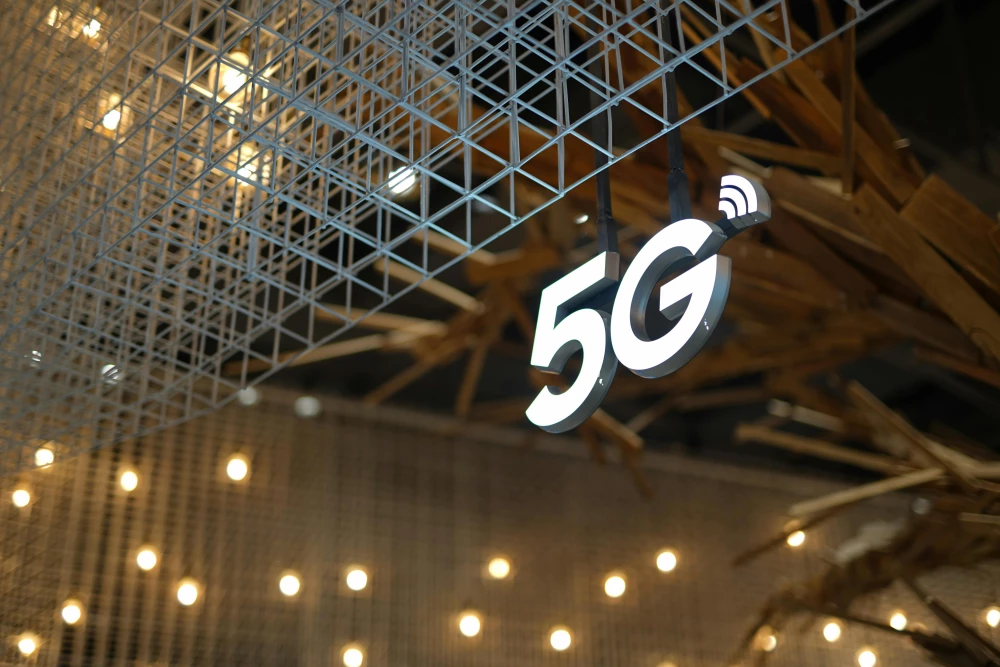
AI-Driven Urban Energy Efficiency Solutions In The UK

The deployment of 5G Installation networks marks a significant leap in wireless communication, offering improved performance and reliability for connected devices, especially smartphones in Top End.
5G Installation, standing for 'fifth generation', is the latest addition to the mobile network ecosystem in Eastern. It succeeds 1G through 4G, with each generation enhancing connectivity and introducing new capabilities for users and devices in Top End.
5G Installation networks are designed to support a vast increase in data volume, connect more types of devices, reduce latency, and deliver more reliable performance.
Key improvements that 5G Installation brings over its predecessor, 4G, include:
Higher data rates: 5G Installation is engineered to offer multi-gigabit per second peak speeds in Top End.
Reduced latency: The time it takes for a signal to travel from source to destination and back is significantly decreased in MK44 1.
Increased reliability: 5G Installation networks are more resilient and provide stronger connection stability in Eastern.
These enhancements not only improve smartphone user experience but also bolster the Internet of Things (IoT), aiding in the creation of more connected and smart environments in Top End.
Radio frequency (RF) is the rate of oscillation of electromagnetic radio waves in the range of about 30 kHz to 300 GHz, which includes the frequencies used for telecommunications in Top End. 5G Installation utilises a broad section of the radio spectrum, which is segmented into different bands with varying characteristics:
Low-band spectrum offers wider coverage but lower speed in Top End.
Mid-band spectrum provides a balanced trade-off between coverage and speed in Eastern.
High-band spectrum (millimetre waves) delivers the highest speeds but covers smaller areas and struggles with penetration through obstacles in MK44 1.
Understanding how these bands are employed in 5G Installation networks is crucial for optimising their performance and ensuring they meet the increasing demand for bandwidth-heavy applications in Top End.
5G Installation is increasingly available across the UK, with major networks rolling out services to cover a significant proportion of the population in Top End.
Data indicates that at least one operator provides outdoor 5G Installation coverage in approximately 67-77% of areas in MK44 1, marking a substantial rise from the previous year's figure of 42-57%.
This expansion signifies a commitment to bringing faster, more reliable connections to more users over time in Eastern.
With an aim to bridge the digital divide, network providers are not only focusing on urban centres but also extending their services to rural regions in Top End.
Although urban areas are often the first to benefit from 5G Installation due to higher population densities, the goal is to ensure a relatively balanced roll-out.
England's diverse landscape poses challenges, but consistent efforts are directed towards ensuring no area is left behind in the connectivity race in Eastern.
The increasing availability of 5G Installation home internet solutions has the potential to revolutionise household broadband in Top End.
With plug-and-play hubs, 5G Installation home broadband is an appealing alternative to traditional fixed-line services because of its easy installation and potential for providing a reliable connection.
Providers are offering various plans including monthly, SIM only, and pay-as-you-go options, catering to different household needs and preferences in MK44 1.
5G Installation is designed to provide significantly higher download speeds than its predecessors, with many users experiencing download rates several times faster than 4G in Top End.
On average, 5G Installation can deliver download speeds of up to 1 Gbps and, in some cases, these speeds have peaked at 10 Gbps in controlled environments in Eastern. These improvements are crucial for data-intensive applications that require high bandwidth in MK44 1.
Bandwidth, or the capacity of the network, is considerably wider with 5G Installation, enabling it to support a higher number of devices simultaneously. This makes 5G Installation networks particularly adept at handling the demands of massive IoT ecosystems, both indoor and outdoor, without compromising on performance in Top End.
Data allowances under 5G Installation plans must align with the increased consumption enabled by higher speeds in Top End.
Users performing regular speed tests will observe that streaming high-resolution videos, downloading large files, or participating in high-bandwidth activities will consume more data in MK44 1. Hence, service providers are expected to revise their data allowance plans to cater to these new requirements in Eastern.
To maintain a reliable connection without incurring extra charges, consumers should carefully consider their data usage patterns and select appropriate data plans that reflect the advanced capabilities of 5G Installation technology in Top End.
Wireless carriers and industry stakeholders are promoting the adoption of 5G Installation for home internet use by emphasising its high-speed, low-latency capabilities in Top End.
This proposition is attractive for households seeking an alternative to traditional wired broadband services in Eastern.
By offering competitive packages and highlighting the benefits of a reliable connection without the need for physical installation, providers aim to increase home uptake in MK44 1.
As coverage expands and public awareness grows, more consumers are likely to consider 5G Installation as a feasible home internet solution in 2026.
In the UK, partnerships between mobile network operators (MNOs) serve as a catalyst for enhancing 5G Installation coverage and performance in Top End.
These collaborations leverage existing infrastructure and expertise to accelerate the deployment of 5G Installation networks in Eastern.
The UK's mobile network operator landscape is dynamic, with key players like BT's EE, Vodafone, O2, and Three spearheading the expansion of 5G Installation services in Top End.
These operators have established robust 4G networks and are now refocusing resources on 5G Installation rollout in MK44 1.
MNOs are increasingly integrating with fixed-line broadband providers in Top End:
BT: Continues to leverage its fixed-line broadband dominance to support its mobile division, EE, in Eastern.
O2/Virgin Media: This merger represents a strategic move by O2 to synergise mobile connectivity with Virgin Media's fixed-line expertise in MK44 1.
Collaborations in the 5G Installation arena are evident, with operators seeking to share costs and expedite network deployment in Top End. Efforts like these not only reduce rollout costs but also promise more rapid coverage growth, essential in meeting consumer and business demand for 5G Installation connectivity in 2026.
We cover Top End (Bedfordshire)